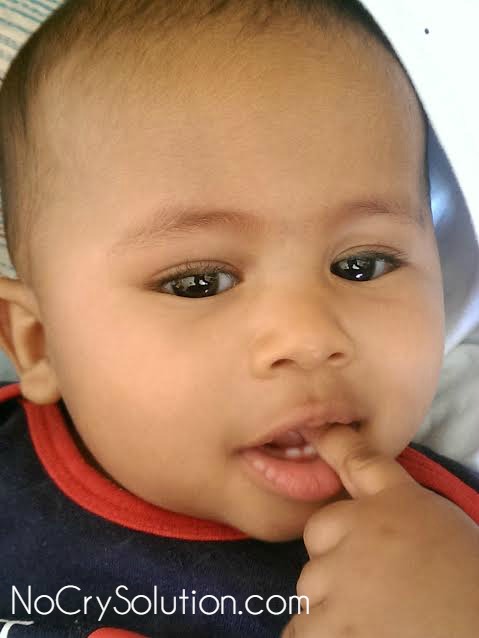
In the first year of life your baby needs lots of sleep (13 to 18 hours a day!). Sleep is necessary support for your little one’s rapid growth and development. But your baby doesn’t know that! He exists in the moment and responds to his body’s needs and the environment. Many parents don’t realize that their baby’s sleep needs are powerfully driven by instinct and by understanding and responding to his cues sleep can be a very easy, pleasant process. When your baby is tired, he’ll sleep – but only if the conditions are right. If not, he will fuss and cry about not sleeping.
The good news is that when your baby is tired he will show you this in many different ways. Catching his cues allows him to fall asleep easily and assures he’s have more restorative sleep.
If you miss these signs of fatigue your baby can move quickly into over-tired mode and his fussing can rapidly escalate until it prevents him from being able to fall asleep easily. Once you learn to read your baby’s signals and respond to them appropriately sleep will be stress-free and blissful.
Typical Infant Communication Signals
These are a variety of typical signs of tiredness that babies show us — your little one may demonstrate only one or two of these, or a whole assortment of these signs. Although babies are each unique in their communication, there are some typical ways that newborns show their fatigue. The following list of the most common things that say “I’m tired!” will help you to learn to read your baby until you learn his own specific sleepy signs.
Signs that your baby may be tired:
• A lull in movement or activity; calm, slower movements
• Quieting down, making fewer or simpler sounds
• Losing interest in people and toys
• Appearing unfocused; staring off in the distance
• Limp, relaxed face and jaw
• Fussing or whining
• Eyes open wide and unblinking
• Rubbing eyes, ears, or face
• Not settling down in your arms, squirming
• Yawning
• Being awake for one to two consecutive hours (newborn) or three or four hours (baby.)
Signs that your baby might be overtired:
• Fretful crying (can also indicate hunger)
• Flailing, uncoordinated movements of arms and legs
• Chin down, head nodding loosely
• Drooping eyelids, slow blinking, eyelid fluttering
• Dark circles appearing under the eyes; eyes appearing red or bloodshot
• Being awake for more than two consecutive hours (newborn) or more than four to five hours (baby.)
When You See Signs of Tiredness
When your baby shows signs of fatigue it’s not time to launch into a pre-sleep ritual. It’s time to put your baby immediately to bed. When your baby signals tiredness, there is a window of opportunity for quickly falling asleep. When you identify and respond to that window of opportunity, you will enable your baby to fall asleep much, much, MUCH easier.
If you miss these signs of tiredness, Baby can quickly move into an over-tired phase. The problem with this is that an over-tired baby doesn’t fall asleep easily – instead he gets a second wind, becoming ramped up, fussy and anxious, and those feelings can prevent the sleep that he craves.
In no time at all, by watching your baby carefully you’ll get to know your own baby better than anyone else in the whole world. And soon, even if your baby doesn’t show any of the signs on the list, your intuition will let you know when Baby needs to sleep.
Elizabeth Pantley is a mother, grandmother, and author of the bestselling book, The No-Cry Sleep Solution for Newborns and 8 books in the No-Cry Solution Series, which helbethps Moms and Dads through all key stages of parenting.



























